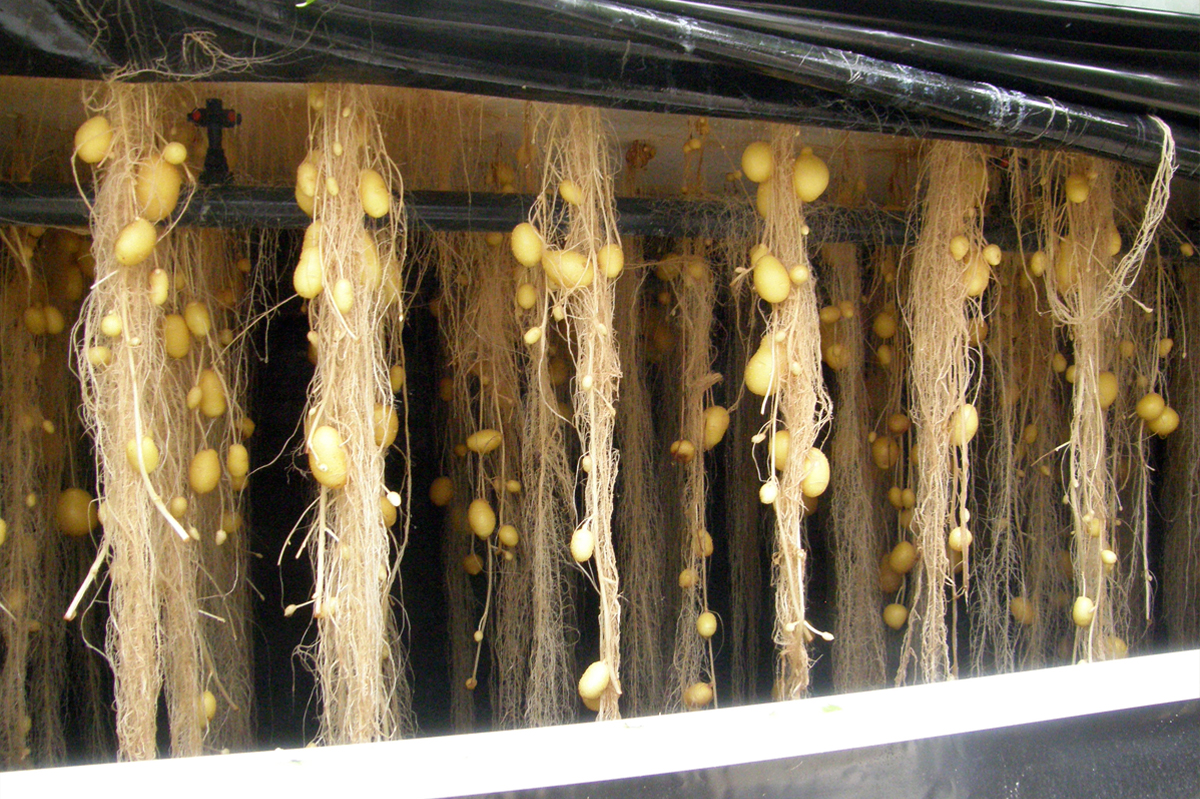NEW
Aeroponics, a sustainable alternative for mini-tuber crops
5 May 2022Aeroponics, a sustainable alternative for mini-tuber crops
- At NEIKER we are developing various lines of work so that agriculture 4.0 can contribute to the qualitative leap that the agriculture and livestock sector needs
- The benefits of aeroponic crops run from increased production and reduced costs, to the optimisation of water use
- Water consumption, for example, can be reduced by between 30% and 50%
Artificial intelligence and digitisation are some of the technological influences that are driving a true revolution in agriculture. The opportunities that stem from these tools are diverse, but, above all, necessary to drive the generational shift of the sector, improve the quality of the crops and offer a response to the growing demand among consumers, who are increasingly opting for more sustainable production that is respectful of the environment. Therefore, At NEIKER we are developing various lines of work so that agriculture 4.0 can contribute to the qualitative leap that the agriculture and livestock sector needs, aware that technology has advanced in recent years and that its correct implementation can be extremely profitable for the sector.
In the specific case of potato crops, part of this progress is the aeroponic growing system, which is based on watering all the roots of the plant for a few seconds using a nebuliser, a small machine that converts the nutritional solution into vapour.
The aeroponic system is designed to obtain top quality crops in aseptic conditions to prevent disease being caused either in the seed or in the plant. Similarly, this system achieves optimised aeration or ventilation of the roots, one of the main factors that favours increased production of mini-tubers, compared to the usual methods of growing them in soil.
In this regard, the time that the roots are without water enables them to capture oxygen more efficiently. This leads to yields three times that of conventional crop systems. As Natxo Ruiz de Galarreta, researcher in the Plant Production and Protection Department at NEIKER, explains, “thanks to this aeroponic cultivation system we can obtain between 400 and 800 potatoes per square metre, as opposed to the 100 plants that can be planted using the traditional cultivation system”.
Similarly, this type of cultivation system does not need substrate, which decreases costs, and improves environmental quality. For example, in this growing system the water consumption is much more efficient, which reduces the water in the fertilisers by between 30% and 50%.
At NEIKER we provide innovative technological solutions to the primary sector and we are developing the aeroponic cultivation system for the production of seeds for the main varieties of potato grown in Álava and their transfer to the sector.
NEIKER with local farmers
“It is dedicated work as support to the potato seed sector to facilitate the production of varieties required by growers and that are sometimes more difficult to find. We also aim to reduce the import of seed potato from abroad and thus avoid dependence on other countries for the supply of this root crop” says the NEIKER researcher.
Thus the harvests grown using this system are cleaner and more practical, and allow greater control over the size of the potato than those grown using classic systems, as harvests can be made sequentially, with annual crops available over time.
In addition, this aeroponic system is indicated for a basic installation in greenhouses with an automatic irrigation system and production structures that support the plants.
We are currently working on the design and development of this system to reduce the use of water and fertilisers by microspraying water onto the roots of the potatoes. We are also experimenting with using it in the production of different vegetables such as peppers, lettuces, courgettes and tomatoes; cereals such as wheat and flowers including chrysanthemums, carnations and roses.



